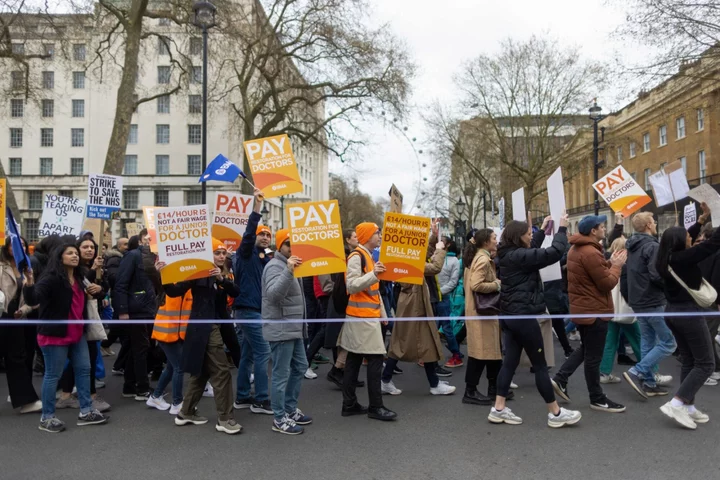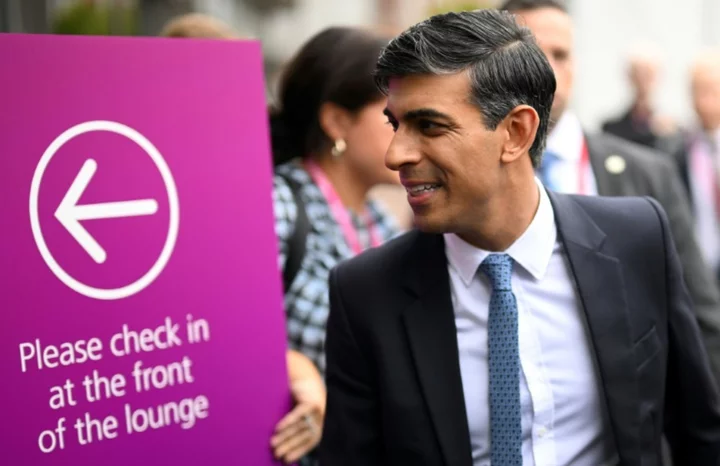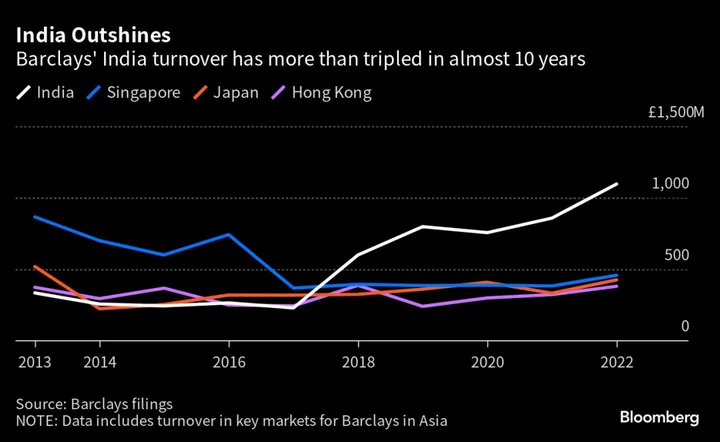The Czech Republic is likely to hold borrowing costs steady as slowing inflation prompts investors to look for clues about the start of monetary easing.
The central bank in Prague will keep the benchmark interest rate at 7% on Wednesday, according to all analysts in a Bloomberg survey. Policymakers haven’t budged from that level for a year as the European Union member state weathered the worst cost-of-living crisis in three decades.
Czech central bankers are weighing depressed household consumption against the potential threat the EU’s lowest unemployment poses to price increases. After a tight vote against raising rates last month, ebbing inflation is buttressing arguments opposed to any further tightening.
The bank will publish the decision at 2:30 p.m. in Prague, followed by a news conference at 3:45 p.m.
Vice Governor Jan Frait said last week that easing inflation and other indicators at home and abroad have weakened arguments in favor of further rate hikes, with policy tightening over the last two years taking hold with lower commodity and producer prices and falling retail sales.
The $300 billion economy stagnated in the first quarter after a short and mild recession. The central bank sees the inflation rate dropping to single digits this summer from 11.1% in May and returning to the 2% target by around the middle of next year.
But policymakers are trying to steer market views about the timing of rate cuts, signaling that easing will likely start later than in the third quarter, a period implied by the central bank’s own forecast.
Despite recent comments from several board members suggesting a delay in policy easing, money-market prices indicate about 100 basis points of rate cuts this year, starting in September.
The central bank may also reaffirm its preference for a stronger currency as a way to tighten monetary conditions for the country’s biggest exporters, which increasingly take cheaper loans in euros.
“We expect the bank board communication to be again in hawkish tone, with a goal to tame market expectations about rate cuts and keep the koruna strong,” Komercni Banka analyst Jaromir Gec said.









